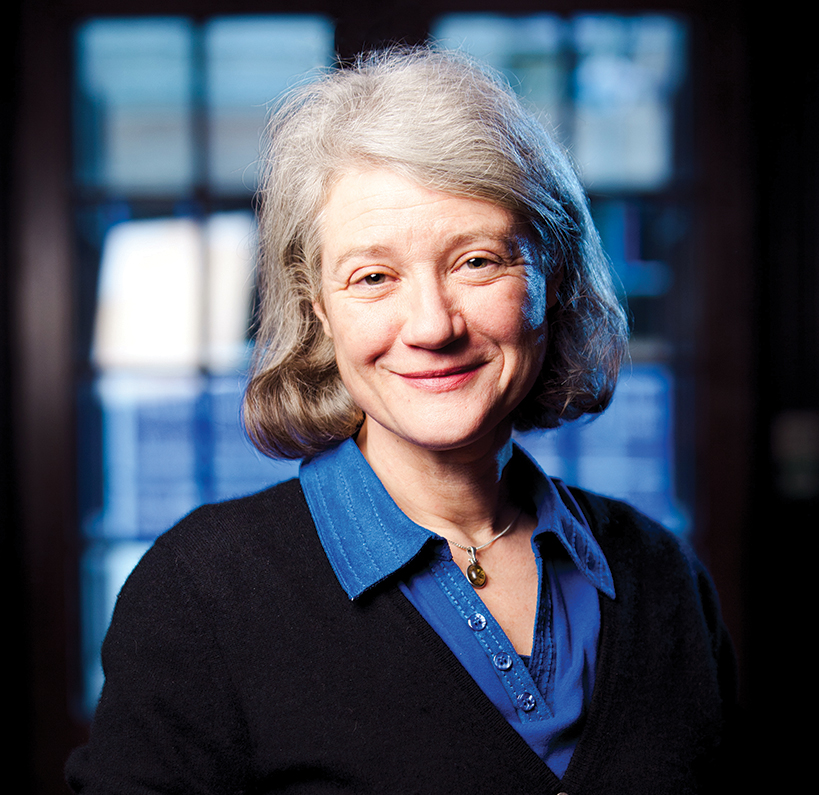Digging in the Archives with Patricia Methven: An Interview
Posted in Stories and tagged with
The soft-spoken yet direct Patricia Methven is no stranger to the Strand, having lived in London since 1969 and worked at King’s College since 1978 in various positions. Today she is the Acting Director of Information Service Systems, which includes IT and Library Services. Today she is the Director of Archives and Information Management, a role that includes managing up to five million archives, several hundred thousand collections of books and the management of college business information. (listen to audio excerpt 1 for more on Patricia’s work).
Patricia says the Strand in particular (which is characterized for her by pollution, noise, and enclosed buildings) doesn’t hold as much meaning to her as King’s, which has been the centre of her working life for over 30 years. Patricia’s first memory of visiting Strand as an intercollegiate student from UCL was the building site of the King’s Strand campus, which she describes as, ‘Absolute noise and chaos everywhere. It hasn’t changed that much!’
It quickly became clear to me that Patricia is someone who truly enjoys what she does and where she does it. When asked to describe King’s in three words she could do it in just one: stimulating. Her regular working week may consist of a variety of interesting activities including teaching doctoral students, developing online teaching packages, escorting distinguished visitors, organizing events, and of course managing the Archive Service, special collections and Information Management.
Her work also gives Patricia the opportunity to meet plenty of interesting people. One of these notable visitors has been the Queen, whom Patricia met several times (most recently at the opening at the new East Wing of Somerset House). She left a rather unexpected impression. ‘She looked like a very tired old lady,’ Patricia says, ‘When I saw her I suddenly thought, why on Earth are we putting an old lady through this?’
Patricia also recalls when, upon her suggestion, the College brought back the Commemoration Celebration. After his lecture, KCL’s arguably most famous alumnus, Archbishop Desmond Tutu, gave her a warm hug in the car park as she was preparing to go home. Her encounter with Bob Geldoff and then Prime Minister Tony Blair at an exhibition was also quite memorable (listen to the full accounts in audio excerpt 2).
When I asked Patricia to tell me about her favorite objects in the archives she told me in an impressively detailed manner about the records she found most memorable; one of which was an old receipt for an invitation to the opening of the new mortuary to be celebrated with a finger buffet. Other items have historical significance, such as the diary of Field Marshal Alan Brook from WWII and the disturbing records of how bodies were obtained for dissection at the College in the 1800s (listen to the full story in audio excerpt 3). It is a glimpse into the darker parts of the Strand and Covent Garden, which used to be home to some of the poorest areas in London. It is fraught with all sorts of unpleasant tales of the lives of ‘the poor, extremely poor, and the more-or-less criminal’, as Patricia notes.
It’s not all doom and gloom however, as Patricia believes it is the different people at King’s that make working in the area worthwhile. The Strand itself is, of course, a staple in her life. During lunchtimes Patricia likes to pop into Somerset House for the latest exhibition and she used to visit Covent Garden frequently (though not as often since it’s become expensive!) Unlike most Londoners, Patricia also doesn’t mind the tourists, though she does note that as one walks down to Trafalgar Square the area seems ‘increasingly soulless’ due to the coffee shops and chain stores that replaced the individual shops of old. Other changes are more favorable, such as the sprucing up of Covent Garden (‘frankly, there was nothing much to see there apart from a vegetable market’) and the transformation of Somerset House from what used to be a car park for the Inland Revenue. Patricia also appreciates the changes at King’s over the years. The College’s expansion, both in student numbers and campuses, has provided her with new opportunities and challenges.
London itself definitely comes with its own charms as well. Patricia especially enjoys the liveliness and diversity of the city; the knowledge that she could go out on any day or night and find something interesting makes life more exciting. Consequently, Patricia has a hard time imagining living elsewhere. She says with a laugh, ‘My parents retired to one of those seaside places, which is terribly clean and wholesome, surrounded by people of a certain age. I realised I actually prefer liveliness and dirt!’

